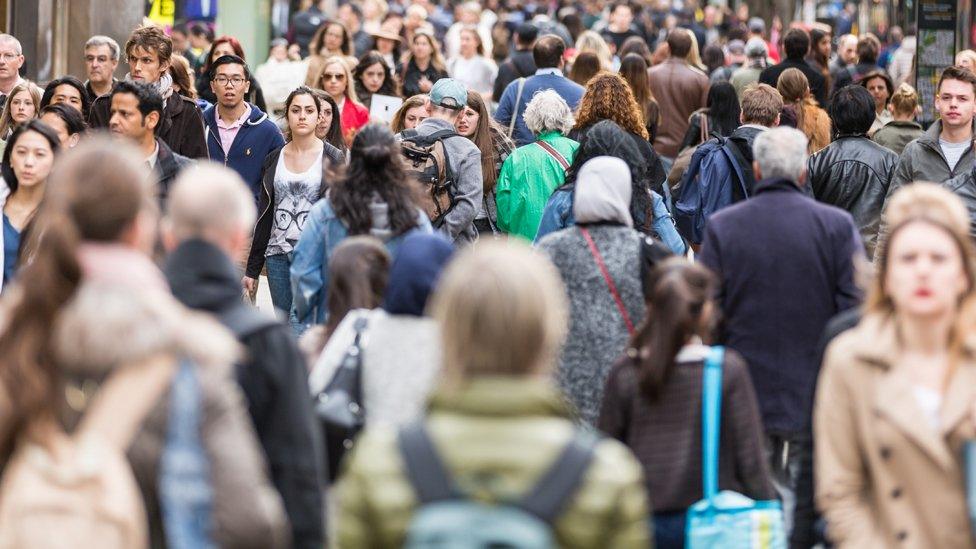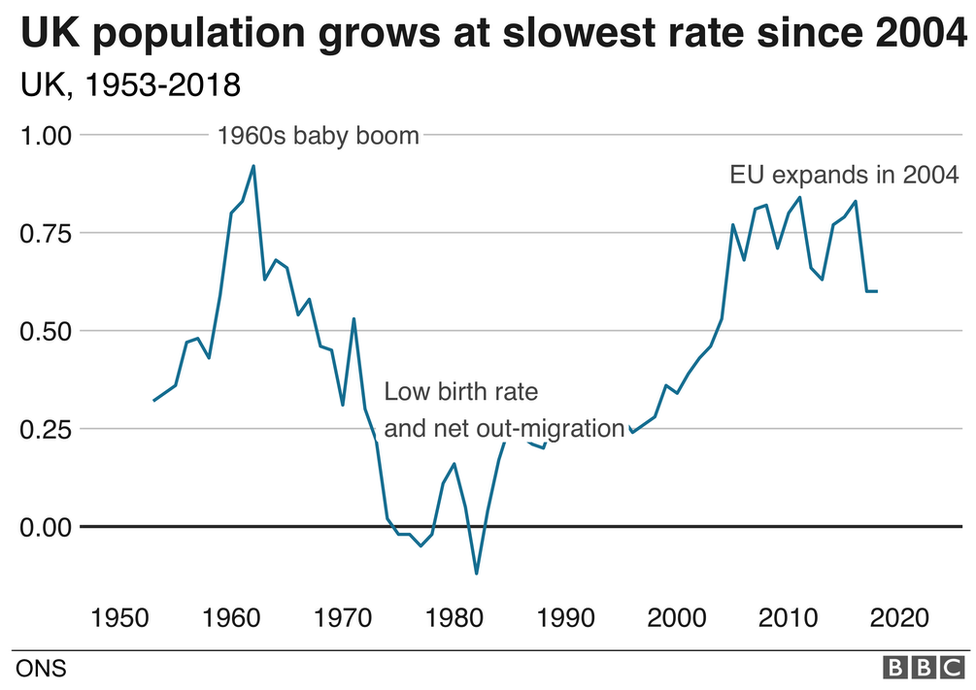UK population growth rate stalls, official estimates show
- Published

The UK population rose by 400,000 last year but the growth rate stalled, official estimates show.
There were about 66.4m people in the country in June 2018, according to the Office for National Statistics (ONS)., external
But the annual growth rate of 0.6% was the same as the previous year and is slower than any year since mid-2004.
The figures also showed that the number of births was the fewest in over a decade, while the number of deaths was the highest since the year 2000.
Net migration of 275,000 was "broadly in line" with the average of the last five years, the ONS said.
Central London had the four local authorities with the fastest-growing population - the City of London, Westminster, Camden and Tower Hamlets.
That growth between mid-2017 and mid-2018 was "partly a reflection of the increase in net international migration" in those areas, the report said.
"For the fifth year in a row, net international migration was a bigger driver of population change than births and deaths," said Neil Park, head of the ONS population estimates unit.
However, he added that overall population change "remained fairly stable" as the increase in net migration had been "roughly matched" by the decrease in births and the increase in the number of deaths.

The number of births was 744,000 - the fewest since 2006, and a 2% decrease on the previous year.
However, the number of deaths increased 3% to 623,000 - the most since the year 2000.
Local authorities with the biggest % increases:
1. City of London: 13.7% (population: 8,706)
2. Westminster: 4.3% (255,324)
3. Camden: 3.5% (262,226)
4. Tower Hamlets: 3.2% (317,705)
5. Tewkesbury: 2.5% (92,599)
Local authorities with the biggest % decreases:
1. Richmondshire: 0.8% decrease (population: 53,244)
2. Inverclyde: 0.8% (78,150)
3. Isles of Scilly: 0.8% (2,242)
4. Rushmoor: 0.7% (95,142)
5. Ipswich: 0.7% (137,532)
Robin Maynard, from charity Population Matters which researches the environmental impact of population size, said the latest figures gave "no grounds for complacency" about UK population growth.
"Birth rates and migration fluctuate from year to year but our already unsustainable population is continuing to rise and that will continue until a positive strategy is put in place to address it," he said.
Laura Gardiner, research director at the Resolution Foundation think tank which aims to improve the standard of living, said the rates of change "vary greatly across the country".
"The large share of pensioners across some coastal parts of the country stands in stark contrast to far younger populations in Britain's major cities," she said.
"This has huge implications for public service provision across the UK, and how those services are funded."
- Published22 June 2018

- Published18 March 2019
